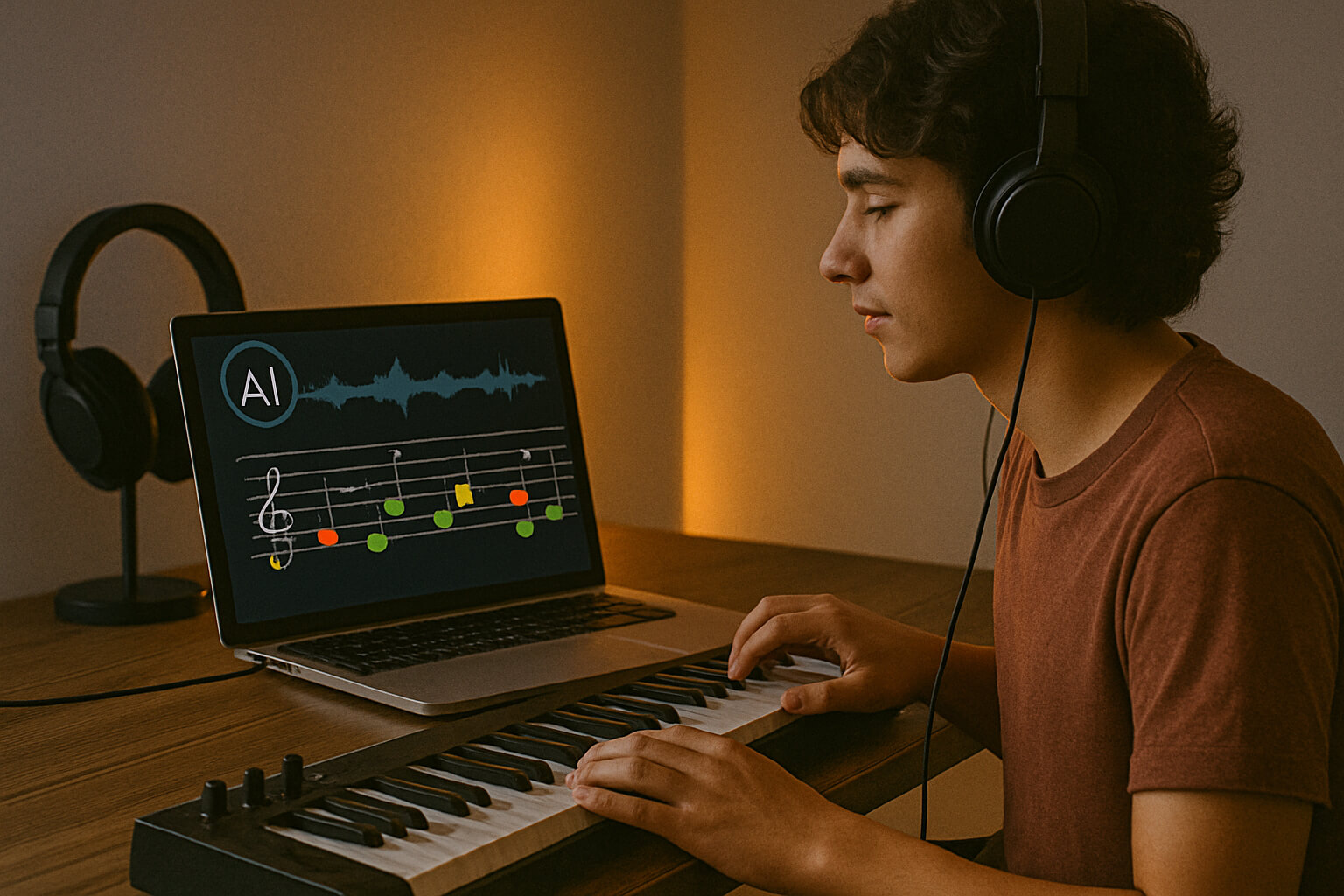Can AI Teach You Music? Pros and Cons

`Artificial Intelligence (AI) is rapidly changing how we interact with the world—including how we learn music. From smart piano apps to AI music generators, students now have access to personalized feedback, adaptive lesson plans, and even creative tools that assist with songwriting.
But can AI really teach you music?
And should it replace traditional methods?
This article explores the pros and cons of using AI to learn music—along with tools you can try today to see how it fits into your musical journey.
Pros of Using AI to Learn Music
1. Personalized Learning at Scale
- AI adapts to your skill level, tracking your progress and adjusting lessons in real-time.
- Whether you're a beginner or intermediate player, tools like Yousician, Flowkey, or AI Generator offer tailored experiences.
- For example, an AI piano tutor can slow down complex parts or suggest finger corrections—something static videos can’t do.
2. Instant Feedback
- AI-driven apps use audio recognition to assess how well you're playing.
- They can instantly tell if you're off-pitch, off-rhythm, or need improvement in dynamics.
- Related Reading: Practice Strategies for Improving Skills
3. Accessible Anytime, Anywhere
- No more scheduling conflicts or commuting to lessons. AI platforms are available 24/7, making learning more convenient—especially for adults with busy schedules.
4. Creative Possibilities with Generative AI
5. Gamified Learning Experience
- Many AI platforms include badges, levels, and achievements to keep learners motivated—especially kids. It’s music education meets video gaming.
Cons of Using AI to Learn Music
1. Lacks Human Nuance
- Music is expressive, emotional, and interpretive.
- AI may teach how to play the notes, but not necessarily why a passage feels powerful or how to interpret a phrase with emotion.
- 🎻 Human teachers can provide context, storytelling, and live demonstrations—something AI lacks.
2. Limited Spontaneous Feedback
3. Genre Bias & Data Dependence
- AI tools are only as good as their training data.
- They may be better suited for mainstream genres (like pop, EDM, or classical) and less accurate with niche styles like free jazz or traditional folk.
- Explore: Improvisation in Jazz & Blues
4. Over-Reliance Can Limit Ear Training
- AI might show you what to play, but over-reliance can reduce the development of aural skills and musical intuition.
- Train your ear actively:
- Ear Training Exercises
5. Subscription Costs and Limitations
Final Verdict: Can AI Teach You Music?
Yes—it can.
AI can teach technique, offer real-time feedback, and even compose with you.
But should it replace human instruction entirely? Probably not.
The best approach may be a hybrid model: use AI for structured practice, ear training, and creativity—while seeking human feedback when needed.
🎶 Think of AI as your coach. But you’re still the artist.
